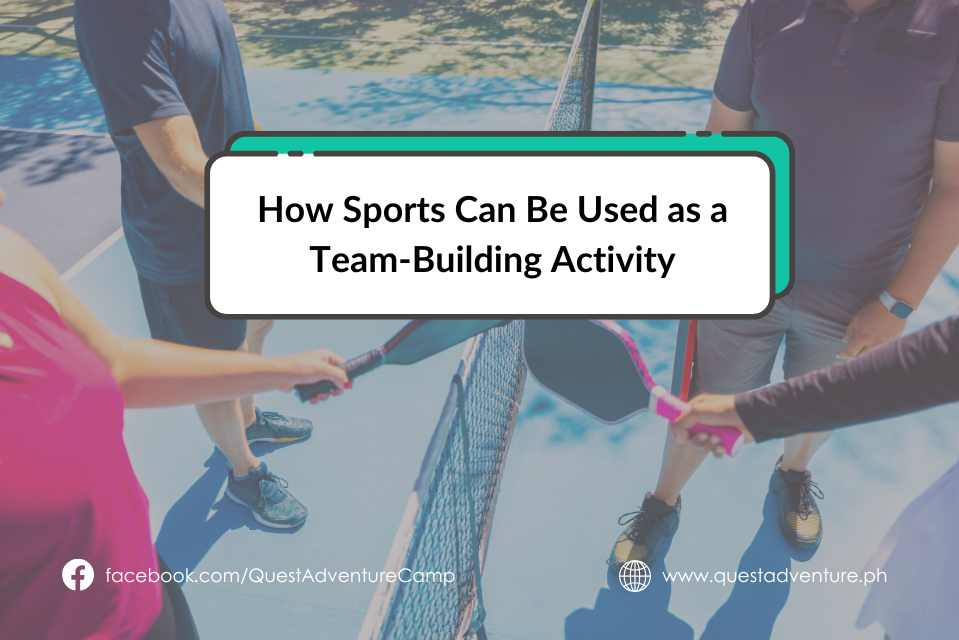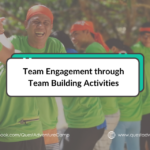
How Sports Can Be Used as a Team-Building Activity
In both professional and personal settings, fostering teamwork is essential for success. While there are numerous ways to build strong teams, sports offer a dynamic and engaging platform that goes beyond traditional team-building exercises. Whether it’s on the field, court, or track, sports provide a unique combination of physical activity, communication, and collaboration that strengthens bonds and enhances group performance.
Promoting Communication and Collaboration
Effective communication is the cornerstone of any successful team. In sports, clear and concise communication is necessary to achieve common goals. For example, during a soccer match, teammates must signal their intentions and strategize in real time to execute plays effectively. Similarly, in volleyball, players must coordinate their movements and positions to score points. These in-game interactions teach participants to listen, respond, and adapt quickly—skills that translate directly to workplace or group settings.
Collaboration is another critical element that sports naturally encourage. A team’s success often depends on how well its members combine their individual strengths. For instance, in basketball, players with different skills—shooting, defending, passing—must work together seamlessly to outperform the opposition. This reliance on each other helps to build trust and reinforces the idea that each member’s contributions are valuable.
Building Trust and Camaraderie
Sports foster trust by placing participants in situations where they depend on one another. In activities like relay races, one team member’s performance directly impacts the entire group’s success. Over time, these shared experiences help build a sense of camaraderie. Even casual games, like a friendly round of dodgeball, create opportunities for teammates to celebrate successes and support each other through challenges, strengthening interpersonal relationships.
Outside the actual game, sports provide informal settings for people to bond. A post-match gathering or team huddle can be just as valuable for creating connections as the activity itself. These moments of togetherness can break down barriers, especially in diverse groups, fostering mutual respect and understanding.
Developing Leadership and Accountability
Sports provide a platform for individuals to develop leadership skills and accountability. Team captains, for instance, often take on the responsibility of motivating their peers and making strategic decisions under pressure. This experience nurtures leadership qualities that are applicable in other areas of life, such as work or community projects.
Furthermore, sports teach accountability by highlighting how individual actions affect the entire team. A missed goal, a dropped pass, or a poorly executed play can impact the group’s outcome. Recognizing this interconnectedness encourages team members to take responsibility for their roles and strive for continuous improvement.
Enhancing Problem-Solving Skills
Many sports are fast-paced and require players to think critically and solve problems on the fly. For example, in a game of football, players must analyze the opposing team’s strategy and adapt their approach accordingly. This ability to assess situations, make decisions, and execute solutions under pressure is a valuable skill in any team environment.
The Role of Quest Adventure Camp’s Multi-Sport Court Facility
Quest Adventure Camp, with its new multi-sport court facilities, provides the perfect venue for achieving team-building goals through sports. The versatile courts are designed to host a variety of sports, such as basketball, volleyball, pickleball, and more, allowing teams to engage in diverse activities that challenge their physical and mental skills.
These facilities are ideal for corporate retreats, sports fest, school outings, youth camps or community events where fostering teamwork is a priority. The structured environment encourages participants to work together, strategize, and communicate effectively while enjoying friendly competition. Additionally, the camp’s experienced facilitators can organize customized sports-based team-building exercises that cater to the unique needs of each group.
By leveraging Quest Adventure Camp’s multi-sport courts, teams can experience the benefits of sports-driven collaboration in a supportive and invigorating setting. The shared victories and challenges encountered on the courts help create lasting bonds and a renewed sense of unity among participants.
Conclusion
Sports offer a powerful medium for team building by combining physical activity with key interpersonal skills. They promote communication, trust, collaboration, and problem-solving, while also providing opportunities for leadership and accountability. Whether in a corporate setting, school, or community group, organizing sports activities can strengthen bonds and create more cohesive teams. By stepping onto the field together, individuals not only improve their physical fitness but also develop the skills and relationships needed to succeed as a unified group. With its multi-sport court facility, Quest Adventure Camp serves as an exceptional venue to harness the power of sports for building stronger teams.







No Comments
Sorry, the comment form is closed at this time.